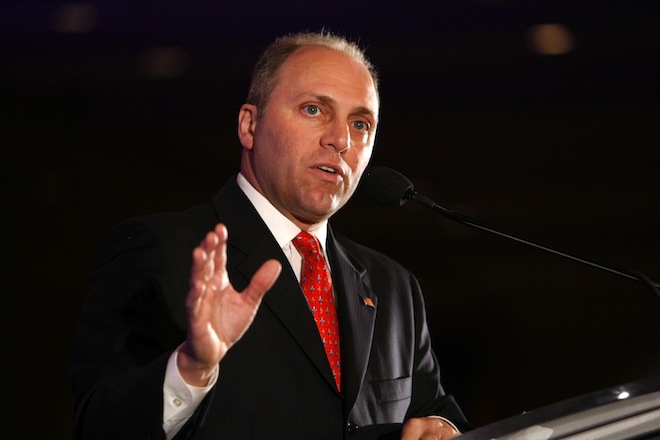The latest House Republican health care reform plan, unveiled Wednesday, with many of the party’s favorite concepts, isn’t going anywhere. The Senate won’t pass it, and President Obama wouldn’t sign it.
But if it did actually take the place of Obamacare, some experts say that it wouldn’t do much to help America’s poor and uninsured.
The plan, drawn up by the House Republican Study Committee, starts with repealing the 2010 health care reform law. It then aims to lower health care costs through a few mechanisms. Income and payroll tax deductions would be available to individuals ($7,500) and families ($20,000) for health coverage. Insurance plans could be sold across state lines. The federal government would pump $25 billion into state high-risk pools for people with preexisting conditions. Medical malpractice laws would be reformed to reduce doctors’ risk of litigation.
If those ideas sound familiar, that’s because they are, Tim Jost, a Washington and Lee professor who supports Obamacare, told TPM. They’re proposals that conservatives have been pushing for a long time.
“There’s nothing new in here,” Jost said. “It’s a repackaging of all the ideas that Republicans have been throwing out there for years and that don’t address the problem.”
The bill’s sponsors admitted as much in a press conference introducing the new 181-page bill.
“A lot of these ideas are ideas that have been talked about for a long time. Some of them are new ideas, but they’re all ideas that people across the country have wanted for a long time, but they’re just not law,” Rep. Steve Scalise (LA), chairman of the Republican Study Committee, told reporters. “So if you’ve got a good idea that’s been waiting for 20 years and it’s still not law, we’re saying to stop waiting.”
As for the merits of the bill itself, Jost said it wouldn’t do much to help the low-income Americans who make up a substantial portion of the country’s 48 million uninsured. First, by repealing Obamacare, it would eliminate income-based aid from Medicaid expansion and premium tax credits for coverage sold on the insurance marketplaces created by the law.
But then by basing aid on tax deductions instead of credits, Jost said, the Republican legislation would have limited benefits for people whose income is so low that they might pay nothing or little in income taxes.
“This doesn’t help people who (Obamacare) helps,” Jost said. “It helps people who vote Republican. A $20,000 income tax deduction doesn’t help you if you’re poor enough not to pay income tax. But it helps you a huge amount if you’re paying at a very high level.”
Other experts concurred. “House GOP plan to be based on a tax deduction, not a credit?” tweeted Austin Frakt, a health economist at Boston University. “Poor people, meet underside of bus.”
Asked about those concerns, Scalise told TPM that the bill would lower the overall cost of health care, making coverage ultimately more affordable to the poor. He also said that the payroll tax deductions would still apply and that Obamacare, by putting people near or below the poverty line on Medicaid, wasn’t helping them anyway.
“The biggest concern I hear from low-income people that is the impediment for them getting health insurance is the cost. By putting forward solutions that actually lower the cost, it makes health care affordable for millions of people who are right now priced out of the market,” Scalise said. “The president’s solution is to dump them onto Medicaid. The most broken part of health care in America is Medicaid.”
Other elements of the GOP plan have also been questioned. High-risk insurance pools were funded as part of Obamacare, intended to help the transition to the law’s 2014 reforms, but turned out to be more expensive than expected. The malpractice reforms being proposed were instituted in Texas, but they have not had a significant effect on health care costs.
And while the Republican proposal would surely be killed in the Senate, the bill might not make it out of the House. Scalise acknowledged to reporters that he had not received a formal commitment from House GOP leadership to have a vote on the bill.






